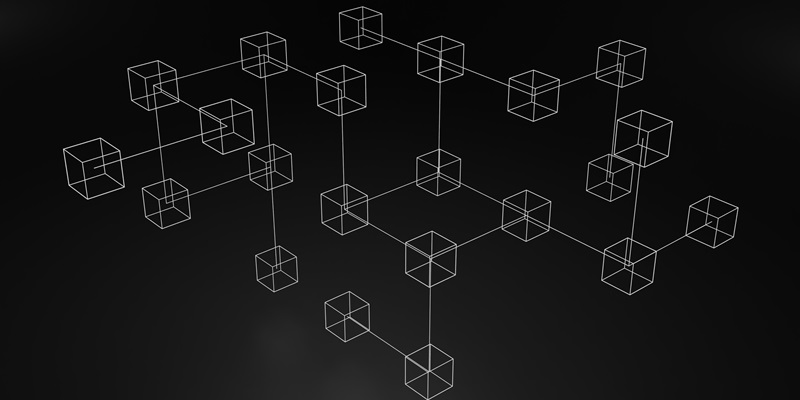The intersection of artificial intelligence (AI) and blockchain technology presents a vast array of possibilities. As AI continues to advance, there are numerous applications for integrating it with the decentralized nature of blockchain. In this article, we will explore the potential impact of AI in blockchain technology and delve into the exciting developments seen in Fetch.ai’s Web3 tooling. Additionally, we will discuss the future focus on text-input transactions, task automation, advancements in autonomous systems, and the emergence of decentralized AI-powered analytics tools. Finally, we will address the security threats posed by hackers and conclude by envisioning the transformative future of communication brought about by the fusion of AI and blockchain.
AI’s role in enhancing Fetch.ai’s Web3 tooling
Fetch.ai, a prominent player in the blockchain space, has leveraged the power of AI to enhance their Web3 tooling. AI provides unprecedented efficiency by optimizing data analysis and insights. With the integration of AI, Fetch.ai’s Web3 tooling has experienced improved decision-making capabilities, higher speed, and enhanced user experiences. This innovative combination has propelled Fetch.ai to the forefront of the blockchain revolution.
Future development focus: Text-input transactions
One of the exciting areas of growth in the AI-blockchain landscape is the ability for users to transact through text input. Fetch.ai envisions a future where users can effortlessly conduct transactions by simply providing a verbal command. For instance, users could say, “Send eighty dollars to John,” and the system would execute the transaction seamlessly. This development has the potential to revolutionize the way we engage with blockchain technology, making it more accessible and user-friendly.
Task automation as a primary use case
The fusion of AI and blockchain offers a significant advantage in the realm of task automation. By harnessing AI’s cognitive abilities and blockchain’s transparency and security, various tasks can be automated with utmost precision and efficiency. From supply chain management to financial auditing, the combination of AI and blockchain technology eliminates the need for intermediaries and reduces costs, while ensuring accurate and verifiable results.
Advancement of autonomous systems on decentralized networks
As we progress further into the realm of AI-blockchain integration, autonomous systems operating on decentralized networks emerge as the next major advancement. With the power of AI, these autonomous systems can make independent decisions based on real-time data, without the need for human intervention. This development paves the way for a future where machine-to-machine interactions occur seamlessly, creating a truly decentralized ecosystem.
Combination of blockchain and AI for decentralized systems
The combination of blockchain and AI holds the potential to usher in a new era of autonomous, decentralized systems. By harnessing blockchain’s transparency, immutability, and trust, along with AI’s cognitive capabilities, complex tasks can be executed autonomously, securely, and efficiently. This transformative combination can revolutionize industries, ensuring fair and equitable access to resources and services.
Possibility of AI-powered analytics tools on blockchain networks
Another exciting possibility lies in the realm of AI-powered analytics tools on blockchain networks. By leveraging AI’s data analytics capabilities, blockchain networks can gain insights, identify patterns, and detect anomalies with unprecedented accuracy. This not only enhances the security and efficiency of blockchain networks but also enables data-driven decision-making on a decentralized scale.
Promising applications of Fetch.ai’s agent technology
Fetch.ai’s agent technology represents one of the most promising applications of AI and blockchain integration. Agents, capable of autonomous action, can interact seamlessly with blockchain networks, facilitating complex tasks and transactions. These agents possess the ability to negotiate, coordinate, and collaborate on behalf of users, leading to greater efficiency and improved user experiences. This technology opens up a wide range of possibilities in sectors such as healthcare, logistics, and finance.
Security concerns: The threat of hackers
While the fusion of AI and blockchain technology holds immense potential, it also introduces new security concerns. Platforms utilizing both AI and blockchain become attractive targets for hackers, given the vast amounts of sensitive data and valuable assets involved. To mitigate this risk, robust security measures, such as encryption and multi-factor authentication, must be implemented. Additionally, continuous monitoring and proactive threat response mechanisms are crucial to safeguarding the integrity and privacy of these systems.
In conclusion, the combination of AI and blockchain technology presents a transformative force that will shape the future of communications. The integration of AI enhances the capabilities of blockchain in terms of efficiency, automation, and data analytics. As advancements continue, we can expect to witness the rise of autonomous systems operating on decentralized networks and the emergence of AI-powered analytics tools. However, it is important to acknowledge and address the potential security threats. With the right measures in place, the fusion of AI and blockchain technology holds the key to unlocking a decentralized future where fair, secure, and efficient interactions become the norm.

